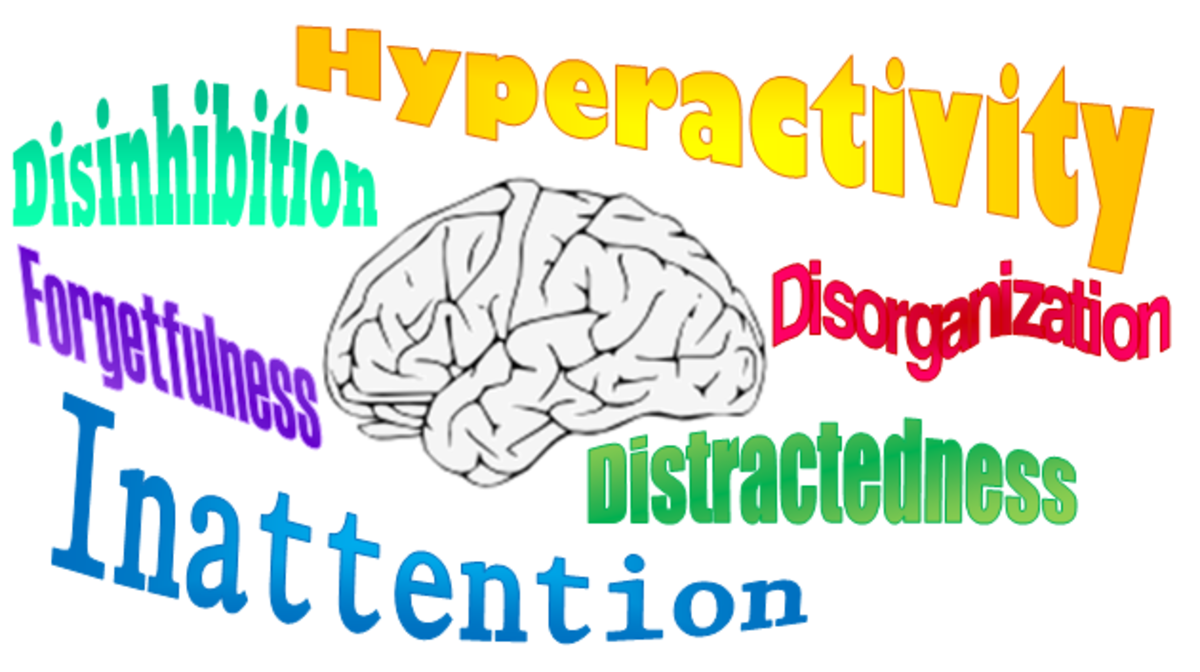A Brief History of Attention Deficit Hyperactivity Disorder
A Brief History of ADHD
Attention Deficit Hyperactivity Disorder or ADHD is one of the most common childhood behavior disorders and while the term itself is fairly recent (within the last century), the condition has been known by a variety of names in previous times.
ADHD is characterized by an inability to control impulsive behavior as well as struggles with focusing and remaining stationary for any period of time.
As far back as the 18th century there were behaviors described by doctors of the time that resembled the symptoms of ADHD.
A Scottish doctor by the name of Sir Alexander Critchton wrote about what he referred to as "mental restlessness" or "the fidgets" in 1798, and in 1845, the German psychiatrist Dr. Heinrich Hoffman wrote a children's poem titled "Fidgity Philip". This poem describes the classic symptoms for what we now refer to as ADHD.
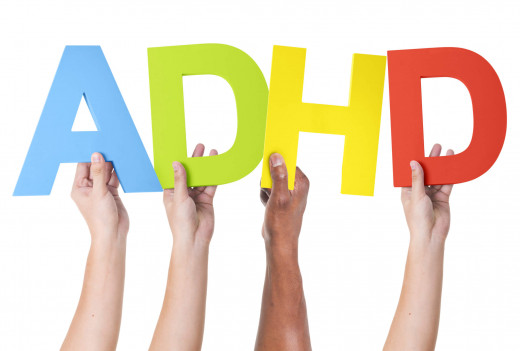
In 1902, the "father of British pediatrics" Sir George Frederick Still first put a name on a behavior disorder that had elements of ADHD, called "Defect of Moral Control".
In his beliefs, this disorder was beyond the person's control whereas in the past it had been thought to be the result of such things as lack of discipline.
The encephalitis epidemics that occurred in the early 20th century were thought by some doctors to cause a type of brain damage that increased impulsive behavior and inability to focus.
Eventually, it was seen that while many of these children were hard to handle, they were very intelligent and perceptive which showed through as they got older.
Through the 1950s and 60's these disorders were studied more extensively and were listed in the 1968 Diagnostic and Statistical Manual of Mental Disorders (also known as DSM by the American Psychiatric Association) as "Hyperkinetic Reaction of Childhood".
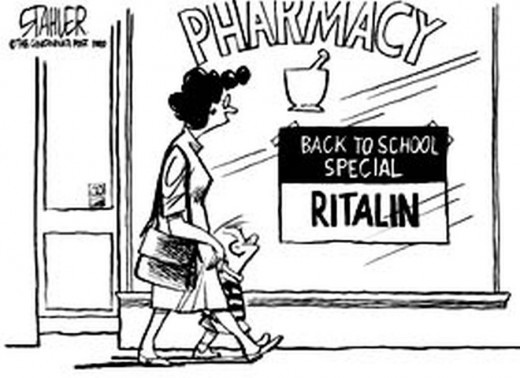
Ritalin, which had been introduced in the 1950s as a stimulant was tested and prescribed to children with this disorder soon after this addition to the manual.
Doctors believed that the medication helped children focus in school and control their impulses. It was also believed that it was something children outgrew as they got older.
The phrase "Attention Deficit Disorder" was coined in the 1970s and later many cases also included the diagnosis of hyperactivity.
Attention Deficit Disorder is a disorder that, while heavily researched and studied, has very little answers, and no definitive cause or cure.
Ritalin Magazine Advertisement 1966
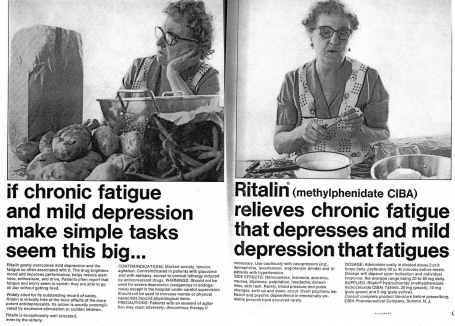
Far too often, medications such as Ritalin and Adderol are prescribed without first examining some basic dietary issues that possibly exacerbate the issue. One of these is food additives, in particular, food dyes.
From
What To Do About ADHD
What is a parent to do? The medications that are used to treat the symptoms of ADHD have some adverse side effects such as loss of appetite and vivid nightmares. Many are advocating nowadays that the child's diet be considered and modified, under a doctor's care.
Removing the foods that contain the additives known or suspected to aggravate the condition is promoted as well as pushing those in the food production industry to find safer, alternative additives. Until that happens, parents are encouraged to look for these additives on the food labels ( Learn How to Read Food Labels ).
Most often, the brighter the coloring of the processed food, the more likely it has dyes that are potentially harmful.
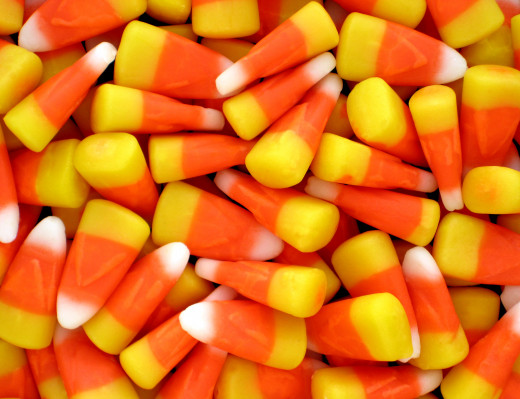
What is still being studied is exactly what amounts of these dyes and preservatives are risky and in what combinations.
A food that has both sodium benzoate and a potentially harmful food dye should be, of course, completely avoided, and this can be a challenge for an already over-stressed parent.
The food companies make these treats and sodas very desirable and are constantly promoting them in commercials and brightly colored advertisements. They are inexpensive and quick to prepare, however there are viable replacements that are much healthier.
ADHD?
Do You Have A Child Who Has Been Diagnosed With ADHD?
Food Additives and ADHD
Do You Believe That Food Additives Can Have An Impact On ADHD?
Foods that contain sodium benzoate include sodas, processed fruit and juices (unless specified), whipped toppings, packaged sweet treats, some salad dressings, syrup, among others.
Most foods with a label contain dye of some kind, so again, and it cannot be stressed enough - look at the ingredients.
Foods that are healthy should be encouraged such as fresh fruits and vegetables, foods rich in omega 3 fatty acids such as salmon, walnuts, and spinach, and whole grains.
Many of these foods can be prepared in a way that is appealing to a child, with a little imagination.
If nothing else, this is as good a reason as any to re-evaluate your child's diet and get them eating healthier.





